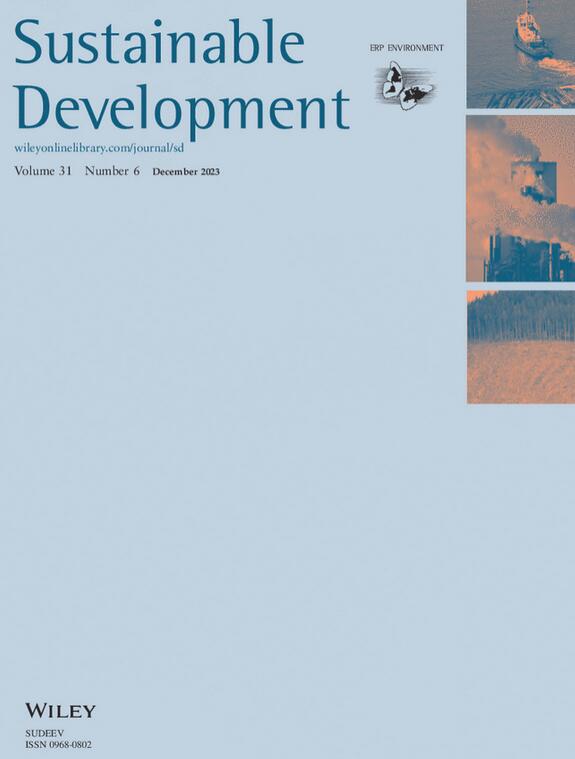How infrastructure development, technological innovation, and institutional quality impact the environmental quality of G7 countries: A step towards environmental sustainability
IF 9.9
1区 环境科学与生态学
Q1 DEVELOPMENT STUDIES
引用次数: 0
Abstract
Despite the economic success, the G7 nations have not adequately prioritized environmental welfare. However, these nations must recognize that economic prosperity cannot be sustained without safeguarding environmental sustainability. In short, environmental protection is a necessary component of achieving sustainable development goals. For this matter, this study aims to analyze the effects of accumulative infrastructure development, economic growth, foreign direct investment, technological innovation, and institutional quality on the CO2 emissions of the G7 countries. Using annual panel data from 1996 to 2020, this study employs cross‐sectional autoregressive distributed lags (CS‐ARDL) to determine the environmental impacts of the variables under investigation. The findings show that foreign direct investment and institutional quality have a favorable effect and improve environmental quality. In contrast, the accumulative (transport, energy, financial, and information and communication [ICT]) infrastructure development, economic growth, and technological innovation stimulate environmental degradation by increasing CO2 emissions. These results are found robust, as validated by the Common Correlated Effect Mean Group (CCEMG). In line with these crucial findings, governments have suggested that specific measures supporting innovation in environmental‐related technologies, infrastructure development, and economic growth must be implemented to mitigate CO2 emissions in the G7 countries.基础设施发展、技术创新和机构质量如何影响七国集团国家的环境质量:迈向环境可持续性的一步
尽管取得了经济成就,但 G7 国家并未充分优先考虑环境福利。然而,这些国家必须认识到,如果不保护环境的可持续性,经济繁荣就无法持续。简而言之,环境保护是实现可持续发展目标的必要组成部分。为此,本研究旨在分析基础设施建设、经济增长、外国直接投资、技术创新和制度质量的累积对 G7 国家二氧化碳排放的影响。本研究使用 1996 年至 2020 年的年度面板数据,采用横截面自回归分布滞后(CS-ARDL)来确定所研究变量对环境的影响。研究结果表明,外国直接投资和制度质量对改善环境质量具有有利影响。与此相反,累积性(交通、能源、金融、信息和通信技术[ICT])基础设施发展、经济增长和技术创新会增加二氧化碳排放量,从而刺激环境退化。共同相关效应均值组(CCEMG)验证了这些结果的稳健性。根据这些重要发现,各国政府建议,必须实施支持环境相关技术创新、基础设施发展和经济增长的具体措施,以减少 G7 国家的二氧化碳排放量。
本文章由计算机程序翻译,如有差异,请以英文原文为准。
求助全文
约1分钟内获得全文
求助全文
来源期刊

Sustainable Development
Multiple-
CiteScore
17.30
自引率
11.20%
发文量
168
期刊介绍:
Sustainable Development is a publication that takes an interdisciplinary approach to explore and propose strategies for achieving sustainable development. Our aim is to discuss and address the challenges associated with sustainable development and the Sustainable Development Goals. All submissions are subjected to a thorough review process to ensure that our readers receive valuable and original content of the highest caliber.
 求助内容:
求助内容: 应助结果提醒方式:
应助结果提醒方式:


